
Theo Moore reflects on how a passion for climbing can turn into an unhealthy obsession...
What do you imagine when you think of bouldering in the winter? In the autumn, when hands and mind are slowly tiring of bolts and run-outs, I imagine those serene crisp winter days spent on beautiful moorland with friends. In the winter, when those blue sky days fail to materialise and I stare out of the window at endless rain, my answer to that question changes.
It's easy to long for the rare but beautiful days not only to enjoy them but to capitalise on the best conditions for climbing hard. But I've found that sometimes this balance can tip the wrong way and I become so obsessed with the conditions and climbing hard that the enjoyment is a secondary consideration. What's worse, this obsession can also impact other areas of my life.
This article comes very much from my personal experience of trying to do something I love - climbing outdoors - and how I was able to quickly and surreptitiously turn it from something extremely positive in to something that was starting to become negative. Whilst it's personal, hopefully my account can be useful to others in maintaining their climbing as a passion rather than a restriction. This self-reflection was partly inspired by Duncan's excellent forum thread on the UKC Logbooks and how he found negative impacts from using them too much. The theme here is similar: obsession with conditions can be negative. Although I'm writing primarily about bouldering in the winter, my thoughts very much apply to other types of climbing and times of year too.
Winter Weather
Let's start off with a bit of a story to set the scene:
The leaves on the trees turn red and the temperatures drop: bouldering season's coming up. You're looking forward to climbing outside, maybe climbing that problem you've always dreamed of or breaking in to the next grade. Perhaps you've even been following a training plan, spending hours at the wall beasting your shoulders and fingers to get stronger. All you need now is to climb outside. Simple, right?
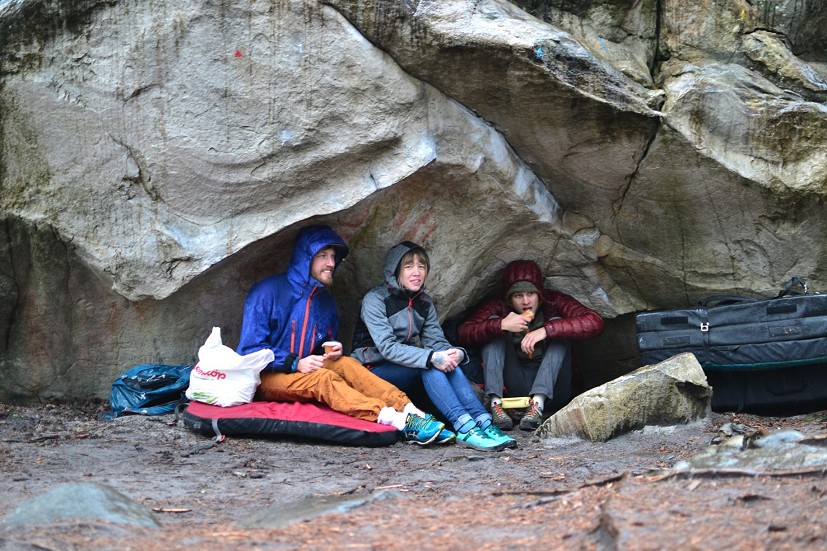
Unfortunately for those of us who live on a typically wet island it's undeniable that weather conditions make a difference to climbing outdoors. If it's raining, you can't climb that dream problem when it's wet. Maybe it's not raining, but some problems take a couple of dry days to be climbable. Even then if the humidity is above 90% the rock can be damp and lacking friction. So, we need a bit of dry weather. Maybe some wind and sun would be nice too. Sounds easy enough, but it can be difficult to find those days in the winter - especially when you consider that your opportunities to climb may be impacted by the other things in life that you want and have to do, like work, family, seeing friends etc.
Okay, so all it takes is a bit of careful planning. Let's download a forecasting app, or maybe two or three, that way we can stay informed for when the good conditions are coming (but don't forget to check the humidity, wind direction and speed as well as the rain forecast). Great, Saturday's looking good and in fact it's the only good weather day you can climb for a week. But you said you'd go for a walk with the family then… damn. Well, let's rearrange that for another day - they'll understand.
Saturday comes and goes and you had a good day - you're hungry for more. That's one solid session down and you know that with a few more you're in with a chance of climbing your first 7B - the one with the inspiring photograph hanging in the climbing wall. You're working in the week but as Friday comes around you're psyched to get out at the weekend - you've been checking the weather forecast for the past couple of days and Sunday looks good. Sunday morning comes and you arrive at your project, having warmed up on your fingerboard at home, eaten well the night before and gone to bed in good time. You can't wait to start climbing but after a couple of hours some unexpected rain comes in. Damn. All that preparation, a decent forecast and still it rained. What do you do now?
Amber Warning
My answer was to try to stay on top of all the variables. The weather is the biggest variable and I can't control that. But I can control some of other things: I could make sure that I was on top of the weather forecasts, always knowing when the weather was good; make sure that I was always ready to climb my best by avoiding going to the wall too often; make sure that I was free from other commitments on the good weather days and that I was so focussed I would only consider climbing my projects. That way I would always be ready to capitalise on the good weather.
That's how do you it, right? That's how the guys that you see on YouTube manage to climb 20 hard problems in a single grit season. If you want to get better at bouldering outdoors you just have to be that dedicated. And being dedicated involves all those things above: being single-mindedly focussed on climbing to the detriment of other things. That's what I told myself.
Slowly, as I focussed all my time and energy on climbing, other things started to drop away. There's no chance of having a fun session down the wall with friends as that would be a waste of energy and skin. In fact, climbing outside with friends is probably not going to happen because, chances are, they're not going to the very specific bit of crag where my project is. Spending time with loved ones or doing non-climbing activities? Well I suppose I could fit some of those in, but they most definitely have to fit around the weather forecast.
I started to notice that my thoughts began to revolve around what I should do. I should go climbing when the weather's good. I shouldn't go to the wall too often. I should make sure that my body and skin are in the best condition. I shouldn't make non-climbing plans at the weekend, just in case I can climb. This language of should is very different to doing things because you want to do them. Compare the two sentences "I should go climbing today" and "I want to go climbing today". In the first sentence there's some rule being following: I should go climbing because x, y, z. These rules are external to me, there's some reason outside of what's happening right now that I'm appealing to and which I must follow. In the second sentence I'm doing something that I feel like doing. I'm making a decision based on what's happening at the moment and I'm much more in the present, considering other people around me, rather than trying to contort my experience to some pre-defined set of rules or self image. This generally leads to doing something enjoyable. On the other hand, trying to meet a rigorous standard that I've set myself, which is itself based on things outside my control and what I perceive other people to do and expect of me, sets a course for disappointment.
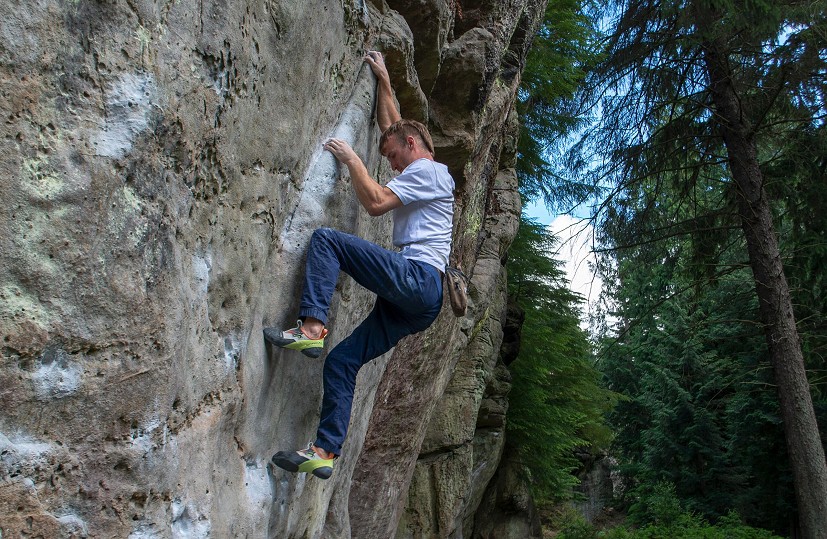
The second thing which made me notice that something was wrong was that, when there was an opportunity to climb and I couldn't take it, I would feel frustrated: "It's a lovely day outside, I bet the crags are all dry and I'm sat here missing it!". That might seem fair enough but what I wasn't thinking was "It's a lovely day outside, I really wish I was climbing right now". Rather, I was thinking about the possibility of good conditions and how annoying it was that I wasn't able to make the most of it. And not just disappointing but extremely unfair and a waste of time. I was certainly focussing on the negative, but more specifically I was disappointed that I was missing good conditions rather than that I wasn't climbing. I was so focussed on meeting my criteria of 'good conditions, capitalise on them, climb hard', rather than enjoying climbing. That seems the wrong way round. Climbing is my passion, not good conditions. I had become obsessed with the conditions rather than the climbing. And the conditions are only important because they enable me to go climbing - so why stress about them? I had again become more involved with the 'shoulds' than the 'wants'.
Thirdly, and this goes back to Duncan's post that I mentioned above, I was really concerned with what I was going to write in my logbook entry. What would I write when I climbed a problem? Would I talk about how quickly I'd done it and how easy I found it? Or would I be more humble so people don't think I'm arrogant? What if a problem took me longer than it should have? Would I justify this in my entry with things like "a bit wet", "been injured and climbing for the first time in a month"?. All of these concerns are not concerns about climbing but about what other people think of me. In fact, the turning point for me was when I'd been trying my project at Burbage and decided to sack it off as I wasn't getting anywhere and climb something else. Before I'd even got to the next problem I was thinking about what I'd write in my 'DNF' logbook entry, and what other people would think about it - would they think that I'd given up on my project too soon? That's when I finally realised that the logbooks comments were, for me, entirely about creating an image of myself for other people to see, and wanting to be liked. That's a sure sign that I'm not enjoying climbing for what it is, my original intention of having fun, and I'm doing it for other reasons which are unhealthy.
These three things made me realise that I wasn't actually having fun climbing. My passion had turned in to restrictions on what I could do and when. I wasn't just climbing for the weather conditions, I created a set of conditions (or more accurately, rules) that my climbing had to meet:
- Always climb whenever there is an opportunity
- Disregard other things in favour of climbing
- Always climb hard
- Always get better
- Do all of the above while considering what other people will think of you
Taking a break
So, as I climbed increasingly to meet my own conditions, rather than climbing to enjoy it, where did I end up? I kept going along that road until I climbed the project I'd be focussing on. When I did there wasn't really any elation, I was just glad that it was over and I didn't have to try it anymore. And after that I totally lost interest in climbing for the first time in ten years. As I write this I've just started climbing again after a two month break. I'm glad that I didn't continue on the same path as I found that it was making me unhappy and I was neglecting both people around me and my other interests. That said, during this break there's definitely been something missing from my life, something which is pure fun and enjoyment. So what lessons can be learned from all this?
The Positives
Firstly, the positives. I've really missed climbing during my time off. And I've missed it because it has such a significant and positive impact on my life: fun, friends, freedom… all things that express the childish part of my self in a positive way. Playing on rocks is just really enjoyable. When I think now about where I'd like to be it's on some sun-kissed European rock with a group of good friends, somewhere with some adventure and a sense of the unusual. The kind of place where you can climb for the fun of it rather than to achieve a goal. And in that idealisation it's interesting to note that the actual climbing is only one part of the desire. Climbing itself is fun and expressive but it's also a vehicle for travelling to amazing places, meeting new friends and forming strong bonds with old ones, as well as putting you in touch with hidden aspects of yourself. This is the kind of climbing I'd like in my life, rather than one driven by rules and expectations. I can't deny the impact of COVID on this picture: none of us have been satisfying our needs for adventure, new places and friends as we'd like to, but it's in times of loss that the things which you value the most come to the fore.
Another positive thing I can take from this, and it might sound strange to call it positive, is a reality check. We are constrained by external factors that are outside of our control and, in this case, one of those things is the weather. Fighting against something that's outside of my control led me to frustration, but accepting it can lead to a more realistic appreciation of the situation and decisions that are based on the here-and-now rather than an ideal. Rather than feeling pissed off when the weather's bad, I can accept that today's not the day for climbing, and focus on something else instead. Similarly, just as undesirable external factors are unavoidable, negative feelings are simply part of life too. It's natural to feel frustrated if you're unable to do something you want to do, and it's okay to accept that negative feelings are a part of you. That said, I can still choose my reaction to events: if it's raining and I can't climb, I can decide to do something else rather than feel bitter about how I'm not ticking off as many climbs as the next person.
The Negatives
Most of this article has been focused on the negative and we've seen a few key themes: obsession with conditions and rules leading to frustration, the impact this has on other people and other interests, and falling out of love with climbing. I think there's a few more lessons in there, though.
As well as bringing out the positive child part of myself - the fun and the freedom - climbing also involved the negative child part of me. "I want to go climbing now. If there's no climbing then I'm going to be angry and frustrated and I'm going to show it". Throwing toys out of the pram would be an apt description. Looking back on my climbing, rather than just the few months I've been talking about here, I can see lots of instances of this: when my desire to climb came above the needs and wants of other people in my life and I would sacrifice anything to get it. It's okay to want to go climbing and to love it, but when it negatively affects other aspects of my life, it's time to for me take a closer look at it.
Sometimes that's what climbing can become. I want a quick hit of doing whatever I want, going wherever I want, feeling strong or free or (and I feel slightly ashamed writing this) important. Feeling powerful and in charge. But it comes at the cost of other things - your girlfriend who wanted a nice day out doing something else, or fancied a holiday somewhere other than hanging off the edge of a sea cliff getting pelted with rain. Or your parents who were really looking forward to spending time with you at Christmas but you couldn't possibly give up the only two dry days in a month. Or maybe even your friends who are also climbers but who aren't going to the crag where your project is. Other interests get thrown out of the window because they're not as important as climbing, along with your old friends who don't climb. In all of these examples other people are losing out, but so am I, even though it doesn't seem like it in the short term because I'm getting what I want. In that way climbing can be like fast food: it tastes good right now, and you know you can have it, but in the end it doesn't really give you everything you want and it's not great for you or others.
A healthier relationship with climbing
So what am I going to do now? I love climbing, but I've seen how I can twist it to negatively affect me. The answer seems easy: I'd like all that positive stuff I've just talked about, and none of the negatives.
In one sense it is that simple: now that I'm more aware of my experiences I can steer myself towards the positive stuff and recognise the negative when it starts to creep up, and steer away from that. I'm aware of what I love about climbing and what I no longer want. I can also now recognise and accept that there will be constraints on my life that I can't change, and that I will at times feel negative.
In another sense it's not so simple because for me climbing has always involved performance: climbing well, climbing the next grade, the next route, climbing harder than a friend, on sighting more routes than I did on my previous trip… wherever and whenever I'm climbing this element of performance and competition has been insidious. And whilst I think this is inherent in a lot of climbing culture and culture generally, it also relates to my own issues around self worth and what people think of me. As such, doing whatever I can to get better at climbing and to climb more has always been of supreme importance and I've seen neglect, or even active deterrence, of non-climbing things as a necessary and desirable thing. For me, the negative aspects of climbing are very much tied up with those positive aspects that I described earlier: my negative and positive child is intertwined.
If I want the positive bits of climbing I'm therefore going to have to untangle them from the messy bits. A lot of that will involve addressing my own issues around performance, self-worth and the opinions of others. Is there still room for climbing improvement and performance, and can I do this in a positive way? Surely others do, and I do see positive things that I get from these, so I hope I can find a way.
Summary
This article has very much been a personal piece. I wanted to keep it that way as I can be honest about my personal experience. By no means do I want to suggest that my experiences come from something inherent in climbing, but rather it's my own personal attitudes, and conditions of self worth, applied to the sport. That said, perhaps you can recognise some of your own attitudes to climbing in there or some of the 'shoulds' that sometimes creep in to your thinking. If so, noticing this is half the battle and once you're aware of it you can keep on top of it. For me, and I think for a lot climbers, pure fun and enjoyment is at the heart of climbing and why we do it. The other stuff has built up on top of it and can sometimes obscure it, but it's possible to chip away at that to get back to our core sense of childish fun.
- REVIEW: Troll Astro Bouldering Pad 26 Jul, 2022
- REVIEW: Black Diamond Mission XP and Technician Leather Approach Shoes 8 Jul, 2022
- REVIEW: Scarpa Mago 14 Apr, 2022
- REVIEW: Mountain Equipment Trango 22 Mar, 2022
- REVIEW: Ocun Nitro 18 Mar, 2022
- REVIEW: 3RD ROCK x Taylor Made Portable Hangboard 13 Dec, 2021
- REVIEW: 3RD ROCK Jeans - Fitz and Mercury 3 Dec, 2021
- GROUP TEST: La Sportiva Solution Comp 28 Oct, 2021
- REVIEW: Wild Country Mosquito Harness 5 Oct, 2021
- REVIEW: Mammut Climbax Review 1 Oct, 2021

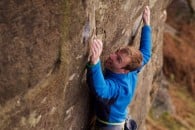

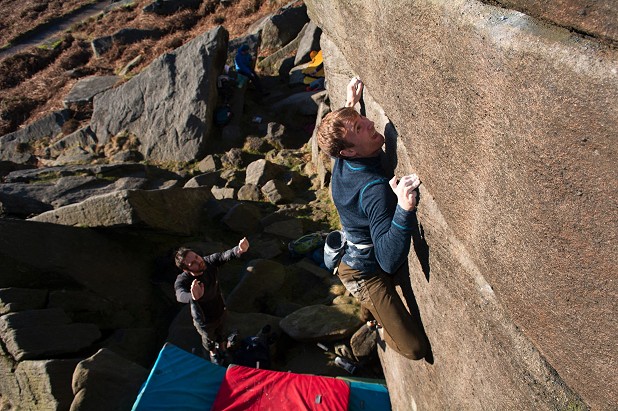
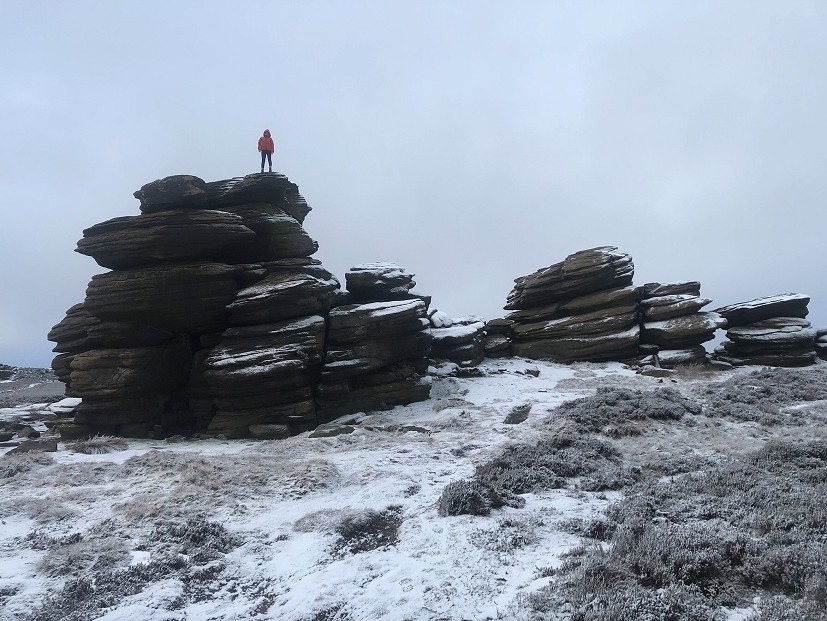
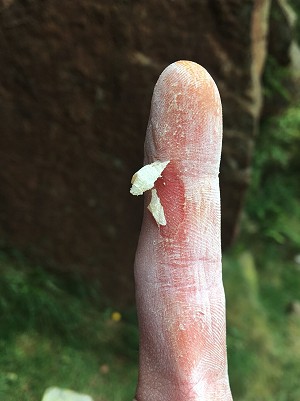
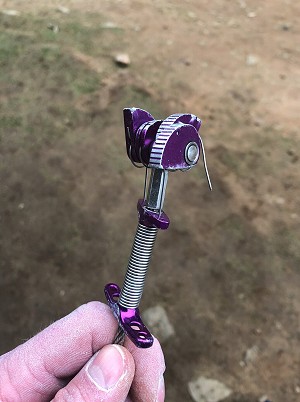
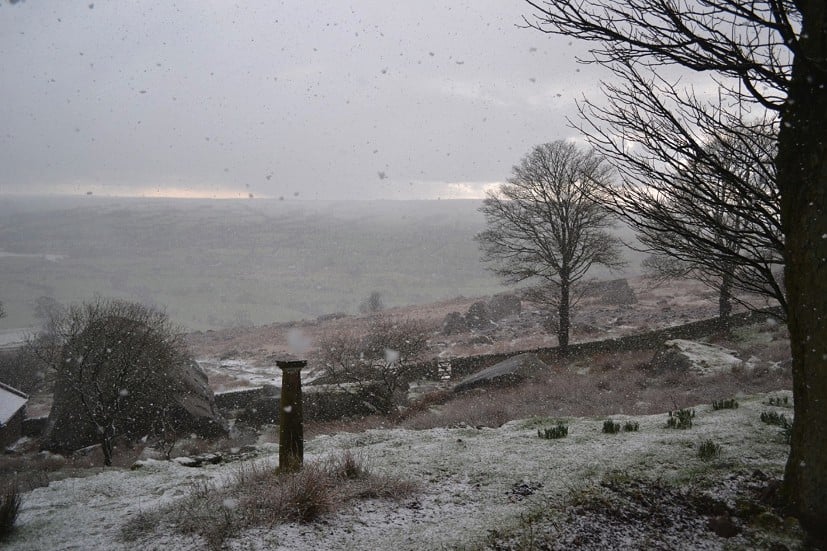

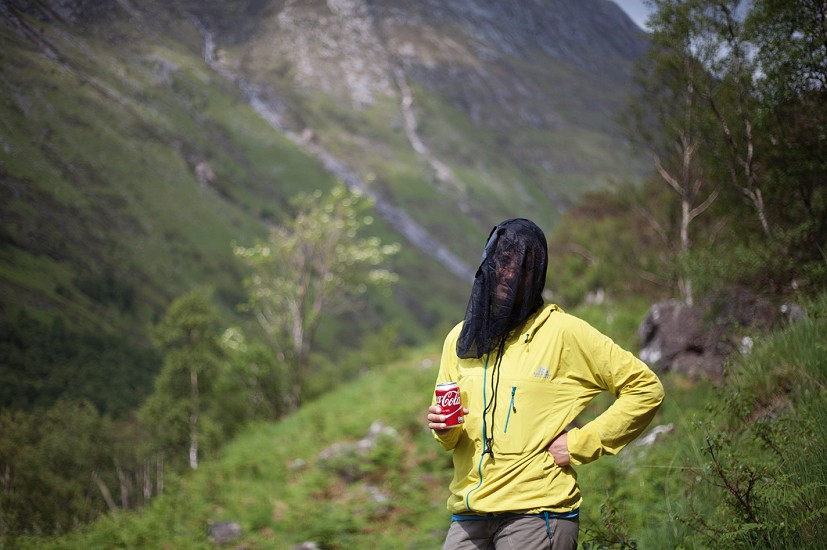
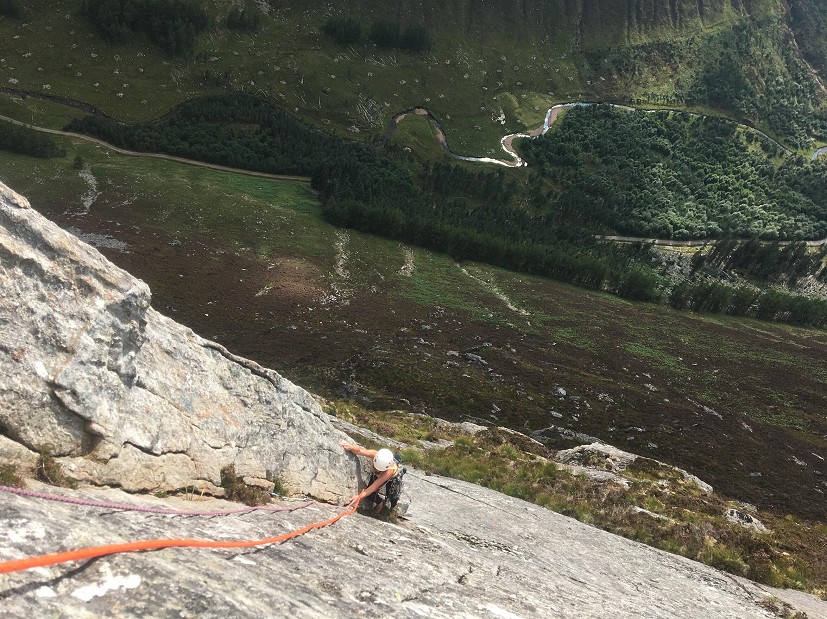
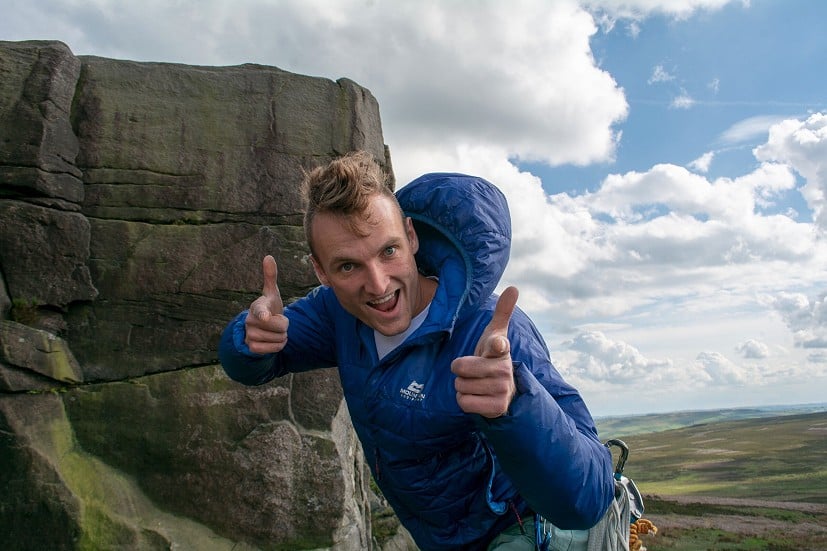
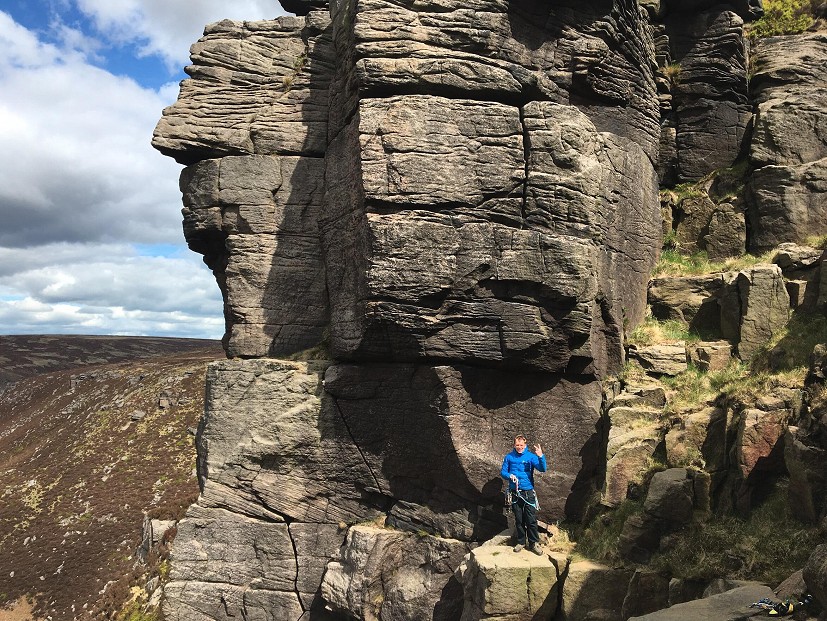

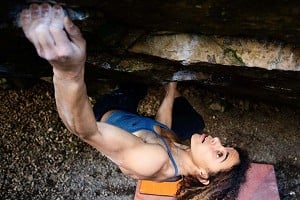
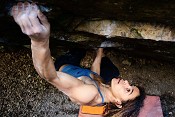










Comments
Interesting article Theo. Thanks for writing so honestly. Recognising there's a problem is the first step to fixing it.
In some ways 'the weather' is the perfect backdrop for this sort of self-examination that can have application in many areas of our lives. If there was ever anything in life that 'just is' and over which we have no control, it's the weather. All that remains therefore, is our reaction to it. It'll be rainy, or sunny, or the wind will be in the wrong or right direction, however we feel about it. You can create your own misery around it, but it only exists in your mind: the rain doesn't care.
Your article reminded me of the first six months of parenthood (about 6 years ago). I was miserable about the lost opportunities, all the other people out climbing, my growing belly and shrinking forearms.....then I realised that being a father (like the weather) wasn't going to change, so I could choose to be happy and stop punishing myself for things I couldn't change. Coming off Facebook and withdrawing from sources that would stimulate jealousy and FOMO helped, and enabled me to enjoy the blessings right in front of me, instead of lamenting the climbing I was missing. I've been a lot happier since then (and totally love being a parent despite all the compromises that come with it)
I hope you continue to focus on what makes you happy and let go of making yourself unhappy! Sounds obvious when written succinctly, but is much harder in practice in our 'performance driven' culture.
In reply to UKC Articles:
Interesting article Theo. Thanks for writing so honestly. Recognising there's a problem is the first step to fixing it.
In some ways 'the weather' is the perfect backdrop for this sort of self-examination that can have application in many areas of our lives. If there was ever anything in life that 'just is' and over which we have no control, it's the weather. All that remains therefore, is our reaction to it. It'll be rainy, or sunny, or the wind will be in the wrong or right direction, however we feel about it. You can create your own misery around it, but it only exists in your mind: the rain doesn't care.
Your article reminded me of the first six months of parenthood (about 6 years ago). I was miserable about the lost opportunities, all the other people out climbing, my growing belly and shrinking forearms.....then I realised that being a father (like the weather) wasn't going to change, so I could choose to be happy and stop punishing myself for things I couldn't change. Coming off Facebook and withdrawing from sources that would stimulate jealousy and FOMO helped, and enabled me to enjoy the blessings right in front of me, instead of lamenting the climbing I was missing. I've been a lot happier since then (and totally love being a parent despite all the compromises come with it)
I hope you continue to focus on what makes you happy and let go of making yourself unhappy! Sounds obvious when written succinctly, but is much harder in practice in our 'performance driven' culture.
In reply to UKC Articles:
Interesting article Theo. Thanks for writing so honestly. As you acknowledge, recognising there's a problem is the first step to fixing it.
In some ways 'the weather' is the perfect backdrop for this sort of self-examination that can have application in many areas of our lives. If there was ever anything in life that 'just is' and over which we have no control, it's the weather. All that remains therefore, is our reaction to it. It'll be rainy, or sunny, or the wind will be in the wrong or right direction, however we feel about it. You can create your own misery around it, but it only exists in your mind: the rain doesn't care.
Your article reminded me of the first six months of parenthood (about 6 years ago). I was miserable about the lost opportunities, all the other people out climbing, my growing belly and shrinking forearms.....then I realised that being a father (like the weather) wasn't going to change, so I could choose to be happy and stop punishing myself for things I couldn't change. Coming off Facebook and withdrawing from sources that would stimulate jealousy and FOMO helped, and enabled me to enjoy the blessings right in front of me, instead of lamenting the climbing I was missing. I've been a lot happier since then (and totally love being a parent despite all the compromises come with it)
I hope you continue to focus on what makes you happy and let go of making yourself unhappy! Sounds obvious when written succinctly, but is much harder in practice in our 'performance driven' culture.
Great article, Theo. I'd be amazed if most of us didn't recognise elements of this as we go through our climbing lives.
Personally I remember when our first child was born, it took me at least two years to come to terms with the fact that I could no longer just head out climbing whenever I wanted. I actually resented it, rather than being delighted I was a dad. Not in a big way, but it was there all the same.
Now I'm just about to turn 58 and there's another factor I'm slowly becoming aware of. I'm pretty much climbing at the same grades I always have, but I have time against me. I can feel time slipping away and feel I should be on the crag as much as possible, while I'm still fit and able. But there's the family stuff, houses to clean, admin etc...
I guess what parenthood taught me - or forced me to find - was patience. And being grateful whenever you can actually get out on the crag.
Speaking of conditions though, there's a route I want to do Tuesday night and it's looking like the only damp day of the week.. grr
Thanks for the replies Chris and airborne. You've both given lovely examples of something we cannot change but to which we can change our attitude and thereby turn it from something that restricts our lives in to something that enriches them. Parenthood is something that I'm yet to encounter but I can see how it brings a similar challenge to the ones discussed in the article. "All that remains therefore, is our reaction to it... let go of making yourself unhappy!" - I think this sums it up nicely Chris!
In reply to ChrisBrooke:
Thanks for the replies Chris and airborne. You've both given lovely examples of something we cannot change but to which we can change our attitude and thereby turn it from something that restricts our lives in to something that enriches it. Parenthood is something that I'm yet to encounter but I can see how it brings a similar challenge to the ones discussed in the article. "All that remains therefore, is our reaction to it... let go of making yourself unhappy!" - I think this sums it up nicely Chris!
Great article Theo. Pretty brave to describe personal demons in the open.
Personally, I've found that the 'banter' is much more important than the route (I haven't always thought like this). I have a massive memory issue, to the point that I can turn up at a crag and have no idea whether I've been there before, never mind which routes I've climbed. When looking back at my hardest ascents I remember very little, if anything, of the actual route. What I do remember, and treasure is the messing around with mates, the walk-ins, the camping, the relentless piss taking or the talking bollocks as it goes dark on the walk off. I've slowly come to realise that these golden parts of climbing happen, no matter what grade you climb. Infact once the stress of 'the tick' has gone, the good times flow much more easily 🙂
I am still ambitious with my climbing and I don't think that will ever go, but not letting it be the 'be all & end all' anymore is a massive relief.
Great read. I got that way about road cycling and Badminton, it becomes an obbession just as you described. I don't do either now as I exhausted all the joy out of it so took up climbing and sea kayaking. My approach this time is just for the joy of doing it, much happier.